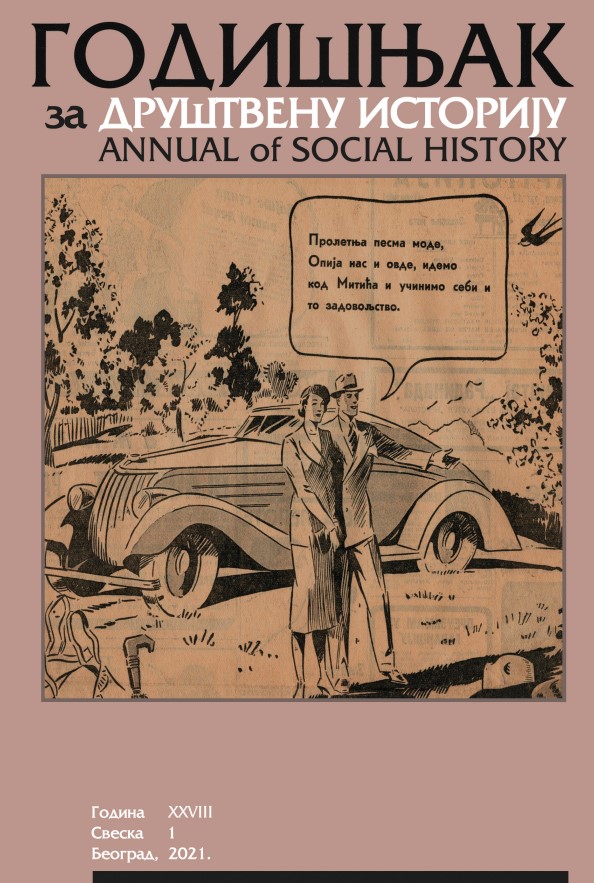Političko i materijalno: habzburško-osmanlijski spor oko „ljudskog materijala“ u postosmanlijskim oblastima Kraljevine Srbije i Kraljevine Crne Gore (1916–1917)
The Political and the Material: The Habsburg-Ottoman Dispute over the Menschenmaterial in the post-Ottoman Territories of the Kingdom of Serbia and the Kingdom of Montenegro (1916-1917)
Author(s): Jovo MiladinovićSubject(s): Military history, Political history
Published by: Udruženje za društvenu istoriju
Keywords: Habsburg Monarchy; Ottoman Empire; Montenegro; Serbia; First Word War; Kosovska Mitrovica; occupation; mobilization; military
Summary/Abstract: The article illustrates the dispute between the Habsburg Monarchy and the Ottoman Empire over the issue of who had the right and who would mobilize the locals of Muslim faith in those areas that were annexed by the Kingdom of Serbia after the Balkan Wars. Stressing the conflicting interpretations and relations not only between their governing elites, but also between the locals of different forms of capitals, or between the latter and the Habsburg occupying authorities, the aim is to indicate how complex and multi-layered relations actuals were during the occupation at local, regional and global levels, as well as all these actors should not be understood as one monolithic whole. These internal and external factors play an important role in understanding the conflict over the “human material.” The paper conceptualizes the chains of their interdependence and relations as part of the process of figuration (Norbert Elias), in which the balance of strength flows to and from between all actors involved in the mobilization process, which must not be viewed exclusively from the perspective of the occupying powers. Actors acquire a social position in the social field according to their different forms of capital (Pierre Bourdieu), which as a result constructs logic, hierarchy, and relations between them. The power ratio thus defines the structure of the field. The dispute over “human material” should be defined either as a struggle for power in the occupied territories or as a struggle for control over resources given its scarcity during the First World War, which also provided an excellent excuse to the Ottoman Empire to interfere in the affairs of its Habsburg ally in the occupied territories under its rule.
Journal: Godišnjak za društvenu istoriju
- Issue Year: 2021
- Issue No: 1
- Page Range: 7-44
- Page Count: 38
- Language: Serbian

